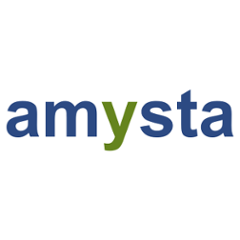IDE
dao-objectify
io.divide : dao-objectifySonatype helps open source projects to set up Maven repositories on https://oss.sonatype.org/
Last Version: 0.5.2
Release Date:Thucydides Gradle Plugin
net.thucydides.plugins.gradle : thucydides-gradle-pluginThucydides Gradle integration
Last Version: 0.9.273
Release Date:Rackspace Storage Provider
org.duracloud : rackspacestorageproviderCloud-based digital content preservation system
Last Version: 4.4.6
Release Date:Last Version: 2.7.0
Release Date:WSO2 Carbon Identity SAML Outbound - OSGi Tests
org.wso2.carbon.identity.authenticator.outbound.saml2sso : identity-SAML-outbound-testsOSGi Tests for SAML Outbound
Last Version: 6.0.2
Release Date:Last Version: 1.6.0
Release Date:wilddog-video-android
com.wilddog.client : wilddog-video-androidAndroid Library to display a set of tags
Last Version: 2.1.1
Release Date:com.arthuryidi.provider:pagerduty-identity-provider
com.arthuryidi.provider : pagerduty-identity-provider-keycloakpagerduty-identity-provider
Last Version: 0.1.2
Release Date:@videojs/http-streaming
org.webjars.npm : github-com-videojs-http-streamingWebJar for @videojs/http-streaming
Last Version: 1.2.4
Release Date:Eclipse SCADA Dave/S7 Configuration Handler (Incubuation)
org.eclipse.neoscada.ide : org.eclipse.scada.configuration.dave.libLast Version: 0.2.0
Release Date:NetBeans Openide-Loaders Platform Library
net.sf.squirrel-sql.thirdparty-non-maven : openide-loadersThe NetBeans Platform is a generic base for desktop applications. It provides the services common to almost all large desktop applications: window management, menus, settings and storage, an update manager, and file access. Get a head start by reusing these standard components, allowing you to concentrate fully on your application's business logic.
Last Version: 4.0
Release Date:Last Version: 3.3.0
Release Date:serialization - providers - native
io.github.qsy7.java.modules.serialization.providers : nativeserialization
Last Version: 0.1.2
Release Date:WSO2 Carbon - Directory server manager. Responsible for defining and managing servers in LDAP.
org.wso2.carbon.identity : directory-server-managerWSO2 is an open source application development software company focused on providing service-oriented architecture solutions for professional developers.
Last Version: 5.5.0-m4
Release Date:Last Version: 1.0.1
Release Date:Last Version: 822.2.1145.0
Release Date:WSO2 Carbon - identity Foursquare OTP Feature
org.wso2.carbon.extension.identity.authenticator : org.wso2.carbon.extension.identity.authenticator.foursquare.featureThis feature contains extension feature for Foursquare
Last Version: 1.0.0
Release Date:APM - ui.apps
com.cognifide.apm.crx : apm-ui.appsAPM (AEM Permission Management) is an AEM based tool focused on streamlining the permission configuration. It provides a rich UX console tailored for administrators. They can write human readable scripts that handle user/group creation/deletion and permissions application, both in bulk. Through it's flexible grammar, exposed API, and high extensibility it vastly improves permission-based implementations.
Last Version: 5.6.13
Release Date:oauth2-provider
com.networknt : oauth2-providerA micro service server that supports multiple OAuth 2.0 providers work in concert.
Last Version: 2.1.1
Release Date:Last Version: 1.6.0
Release Date:WSO2 Carbon Extension - Reddit Pom
org.wso2.carbon.extension.identity.authenticator : org.wso2.carbon.extension.identity.authenticator.redditWSO2 is an open source application development software company focused on providing service-oriented architecture solutions for professional developers.
Last Version: 1.0.2
Release Date:Ant Chain API SDK
cn.com.antcloud.api : antcloud-api-provider-zjlmAnt Chain API SDK For Java Copyright (c) 2020-present antgroup.com, https://www.antgroup.com
Last Version: 1.0.2
Release Date:protobuf-tcp-rsa-provider
com.athaydes.protobuf : protobuf-tcp-rsa-providerProtobuffer/TCP implementation of Aries RSA DistributionProvider
Last Version: 0.2.1
Release Date:Last Version: 0.1.0
Release Date:Last Version: 0.1.2
Release Date:jclouds ElasticHosts Peer1 Toronto provider
com.amysta.jclouds.provider : elastichosts-tor-pElasticHosts implementation targeted to Peer1 Toronto
Last Version: 2.0.1
Release Date:context-help-provider
org.aperteworkflow : context-help-providerAperte Workflow is a compilation of well-known, stable and mature frameworks into a complete BPM solution developed by BlueSoft sp. z o.o. - Polish independent software vendor. Project home page is available at http://www.aperteworkflow.org/
Last Version: 3.2-RC1
Release Date:XOAI Service Provider
com.lyncode : xoai-service-providerSonatype helps open source projects to set up Maven repositories on https://oss.sonatype.org/
Last Version: 4.1.0
Release Date:org.eclipse.ui.ide.application
com.github.adedayo.eclipse.sdk : org.eclipse.ui.ide.applicationA packaging of the eclipse sdk org.eclipse.ui.ide.application library.
Last Version: 1.1.0
Release Date:Real time price provider
org.ogema.widgets : datalog-priceproviderReal time price provider on server
Last Version: 2.2.1
Release Date:Overture IDE Eclipse CSK VDM Tools Link feature
org.overturetool.ide.plugins.features : org.overture.ide.plugins.features.cskProviding GUI for all integrated core plugins
Last Version: 3.0.2
Release Date:Uinspector-optional-glide
io.github.yvescheung : Uinspector-optional-glideA UI inspector to traverse a view hierarchy on Android
Last Version: 2.0.18
Release Date:maven
au.com.dius.pact.provider : mavenPact Maven plugin ================= This is a Maven plugin for verifying pacts against a running provider, publishing pacts generated by consumer tests, and checking if you can deploy. The sections below provide details on each of these goals. <hr/> ** If you are running your tests with the JUnit runners, you do not need this plugin** **This plugin is used to verify a running provider. If you want to verify your provider using unit tests, refer to the [JUnit 4](../junit) or [JUnit 5](../junit5) docs.** <hr/> # Verifying a Provider The Maven plugin provides a `verify` goal which will verify all configured pacts against your provider. ## To Use It ### 1. Add the pact-jvm-provider-maven plugin to your `build` section of your pom file. ```xml <build> [...] <plugins> [...] <plugin> <groupId>au.com.dius.pact.provider</groupId> <artifactId>maven</artifactId> <version>4.1.11</version> </plugin> [...] </plugins> [...] </build> ``` ### 2. Define the pacts between your consumers and providers You define all the providers and consumers within the configuration element of the maven plugin. ```xml <plugin> <groupId>au.com.dius.pact.provider</groupId> <artifactId>maven</artifactId> <version>4.1.0</version> <configuration> <serviceProviders> <!-- You can define as many as you need, but each must have a unique name --> <serviceProvider> <name>provider1</name> <!-- All the provider properties are optional, and have sensible defaults (shown below) --> <protocol>http</protocol> <host>localhost</host> <port>8080</port> <path>/</path> <consumers> <!-- Again, you can define as many consumers for each provider as you need, but each must have a unique name --> <consumer> <name>consumer1</name> <!-- currently supports a file path using pactSource or a URL using pactUrl --> <pactSource>path/to/provider1-consumer1-pact.json</pactSource> </consumer> </consumers> </serviceProvider> </serviceProviders> </configuration> </plugin> ``` ### 3. Execute `mvn pact:verify` You will have to have your provider running for this to pass. ## Verifying all pact files in a directory for a provider You can specify a directory that contains pact files, and the Pact plugin will scan for all pact files that match that provider and define a consumer for each pact file in the directory. Consumer name is read from contents of pact file. ```xml <plugin> <groupId>au.com.dius.pact.provider</groupId> <artifactId>maven</artifactId> <version>4.1.11</version> <configuration> <serviceProviders> <!-- You can define as many as you need, but each must have a unique name --> <serviceProvider> <name>provider1</name> <!-- All the provider properties are optional, and have sensible defaults (shown below) --> <protocol>http</protocol> <host>localhost</host> <port>8080</port> <path>/</path> <pactFileDirectory>path/to/pacts</pactFileDirectory> </serviceProvider> </serviceProviders> </configuration> </plugin> ``` ### Verifying all pact files from multiple directories for a provider If you want to specify multiple directories, you can use `pactFileDirectories`. The plugin will only fail the build if no pact files are loaded after processing all the directories in the list. ```xml <plugin> <groupId>au.com.dius.pact.provider</groupId> <artifactId>maven</artifactId> <version>4.1.11</version> <configuration> <serviceProviders> <serviceProvider> <name>provider1</name> <pactFileDirectories> <pactFileDirectory>path/to/pacts1</pactFileDirectory> <pactFileDirectory>path/to/pacts2</pactFileDirectory> </pactFileDirectories> </serviceProvider> </serviceProviders> </configuration> </plugin> ``` ## Overriding the provider hostname and port when the task is executed (4.2.11+) Maven supports using expressions in the POM using `${...}`, but these are evaluated when the POM is loaded. For the provider hostname and port, you can provide expressions of the form `{{...}}` which will be evaluated using JVM system properties when the verify task is run. For example: ```xml <plugin> <groupId>au.com.dius.pact.provider</groupId> <artifactId>maven</artifactId> <version>4.2.11</version> <configuration> <serviceProviders> <serviceProvider> <name>provider</name> <host>{{pact.host}}</host> <port>{{pact.port}}</port> <pactFileDirectories> <pactFileDirectory>path/to/pacts</pactFileDirectory> </pactFileDirectories> </serviceProvider> </serviceProviders> </configuration> </plugin> ``` This will use `pact.host` and `pact.port` system properties. ## Enabling insecure SSL For providers that are running on SSL with self-signed certificates, you need to enable insecure SSL mode by setting `<insecure>true</insecure>` on the provider. ```xml <plugin> <groupId>au.com.dius.pact.provider</groupId> <artifactId>maven</artifactId> <version>4.1.11</version> <configuration> <serviceProviders> <serviceProvider> <name>provider1</name> <pactFileDirectory>path/to/pacts</pactFileDirectory> <insecure>true</insecure> </serviceProvider> </serviceProviders> </configuration> </plugin> ``` ## Specifying a custom trust store For environments that are running their own certificate chains: ```xml <plugin> <groupId>au.com.dius.pact.provider</groupId> <artifactId>maven</artifactId> <version>4.1.11</version> <configuration> <serviceProviders> <serviceProvider> <name>provider1</name> <pactFileDirectory>path/to/pacts</pactFileDirectory> <trustStore>relative/path/to/trustStore.jks</trustStore> <trustStorePassword>changeit</trustStorePassword> </serviceProvider> </serviceProviders> </configuration> </plugin> ``` `trustStore` is either relative to the current working (build) directory. `trustStorePassword` defaults to `changeit`. NOTE: The hostname will still be verified against the certificate. ## Modifying the requests before they are sent Sometimes you may need to add things to the requests that can't be persisted in a pact file. Examples of these would be authentication tokens, which have a small life span. The Pact Maven plugin provides a request filter that can be set to a Groovy script on the provider that will be called before the request is made. This script will receive the HttpRequest bound to a variable named `request` prior to it being executed. ```xml <plugin> <groupId>au.com.dius.pact.provider</groupId> <artifactId>maven</artifactId> <version>4.1.11</version> <configuration> <serviceProviders> <serviceProvider> <name>provider1</name> <requestFilter> // This is a Groovy script that adds an Authorization header to each request request.addHeader('Authorization', 'oauth-token eyJhbGciOiJSUzI1NiIsIm...') </requestFilter> <consumers> <consumer> <name>consumer1</name> <pactFile>path/to/provider1-consumer1-pact.json</pactFile> </consumer> </consumers> </serviceProvider> </serviceProviders> </configuration> </plugin> ``` __*Important Note:*__ You should only use this feature for things that can not be persisted in the pact file. By modifying the request, you are potentially modifying the contract from the consumer tests! ## Modifying the HTTP Client Used The default HTTP client is used for all requests to providers (created with a call to `HttpClients.createDefault()`). This can be changed by specifying a closure assigned to createClient on the provider that returns a CloseableHttpClient. For example: ```xml <plugin> <groupId>au.com.dius.pact.provider</groupId> <artifactId>maven</artifactId> <version>4.1.11</version> <configuration> <serviceProviders> <serviceProvider> <name>provider1</name> <createClient> // This is a Groovy script that will enable the client to accept self-signed certificates import org.apache.http.ssl.SSLContextBuilder import org.apache.http.conn.ssl.NoopHostnameVerifier import org.apache.http.impl.client.HttpClients HttpClients.custom().setSSLHostnameVerifier(new NoopHostnameVerifier()) .setSslcontext(new SSLContextBuilder().loadTrustMaterial(null, { x509Certificates, s -> true }) .build()) .build() </createClient> <consumers> <consumer> <name>consumer1</name> <pactSource>path/to/provider1-consumer1-pact.json</pactSource> </consumer> </consumers> </serviceProvider> </serviceProviders> </configuration> </plugin> ``` ## Turning off URL decoding of the paths in the pact file By default the paths loaded from the pact file will be decoded before the request is sent to the provider. To turn this behaviour off, set the system property `pact.verifier.disableUrlPathDecoding` to `true`. __*Important Note:*__ If you turn off the url path decoding, you need to ensure that the paths in the pact files are correctly encoded. The verifier will not be able to make a request with an invalid encoded path. ## Plugin Properties The following plugin properties can be specified with `-Dproperty=value` on the command line or in the configuration section: |Property|Description| |--------|-----------| |`pact.showStacktrace`|This turns on stacktrace printing for each request. It can help with diagnosing network errors| |`pact.showFullDiff`|This turns on displaying the full diff of the expected versus actual bodies| |`pact.filter.consumers`|Comma separated list of consumer names to verify| |`pact.filter.description`|Only verify interactions whose description match the provided regular expression| |`pact.filter.providerState`|Only verify interactions whose provider state match the provided regular expression. An empty string matches interactions that have no state| |`pact.filter.pacturl`|This filter allows just the just the changed pact specified in a webhook to be run. It should be used in conjunction with `pact.filter.consumers`| |`pact.verifier.publishResults`|Publishing of verification results will be skipped unless this property is set to `true` [version 3.5.18+]| |`pact.verifier.disableUrlPathDecoding`|Disables decoding of request paths| |`pact.pactbroker.httpclient.usePreemptiveAuthentication`|Enables preemptive authentication with the pact broker when set to `true`| |`pact.consumer.tags`|Overrides the tags used when publishing pacts [version 4.0.7+]| |`pact.content_type.override.<TYPE>.<SUBTYPE>=text\|json\|binary`|Overrides the handling of a particular content type [version 4.1.3+]| |`pact.verifier.enableRedirectHandling`|Enables automatically handling redirects [4.1.8+]| |`pact.verifier.generateDiff`|Controls the generation of diffs. Can be set to `true`, `false` or a size threshold (for instance `1mb` or `100kb`) which only enables diffs for payloads of size less than that [4.2.7+]| |`pact.verifier.buildUrl`|Specifies buildUrl to report to the broker when publishing verification results [4.3.2+]| Example in the configuration section: ```xml <plugin> <groupId>au.com.dius.pact.provider</groupId> <artifactId>maven</artifactId> <version>4.1.11</version> <configuration> <serviceProviders> <serviceProvider> <name>provider1</name> <consumers> <consumer> <name>consumer1</name> <pactSource>path/to/provider1-consumer1-pact.json</pactSource> </consumer> </consumers> </serviceProvider> </serviceProviders> <configuration> <pact.showStacktrace>true</pact.showStacktrace> </configuration> </configuration> </plugin> ``` ## Provider States For each provider you can specify a state change URL to use to switch the state of the provider. This URL will receive the providerState description and parameters from the pact file before each interaction via a POST. The stateChangeUsesBody controls if the state is passed in the request body or as query parameters. These values can be set at the provider level, or for a specific consumer. Consumer values take precedent if both are given. ```xml <plugin> <groupId>au.com.dius.pact.provider</groupId> <artifactId>maven</artifactId> <version>4.1.11</version> <configuration> <serviceProviders> <serviceProvider> <name>provider1</name> <stateChangeUrl>http://localhost:8080/tasks/pactStateChange</stateChangeUrl> <stateChangeUsesBody>false</stateChangeUsesBody> <!-- defaults to true --> <consumers> <consumer> <name>consumer1</name> <pactSource>path/to/provider1-consumer1-pact.json</pactSource> <stateChangeUrl>http://localhost:8080/tasks/pactStateChangeForConsumer1</stateChangeUrl> <stateChangeUsesBody>false</stateChangeUsesBody> <!-- defaults to true --> </consumer> </consumers> </serviceProvider> </serviceProviders> </configuration> </plugin> ``` If the `stateChangeUsesBody` is not specified, or is set to true, then the provider state description and parameters will be sent as JSON in the body of the request. If it is set to false, they will passed as query parameters. As for normal requests (see Modifying the requests before they are sent), a state change request can be modified before it is sent. Set `stateChangeRequestFilter` to a Groovy script on the provider that will be called before the request is made. #### Teardown calls for state changes You can enable teardown state change calls by setting the property `<stateChangeTeardown>true</stateChangeTeardown>` on the provider. This will add an `action` parameter to the state change call. The setup call before the test will receive `action=setup`, and then a teardown call will be made afterwards to the state change URL with `action=teardown`. #### Returning values that can be injected You can have values from the provider state callbacks be injected into most places (paths, query parameters, headers, bodies, etc.). This works by using the V3 spec generators with provider state callbacks that return values. One example of where this would be useful is API calls that require an ID which would be auto-generated by the database on the provider side, so there is no way to know what the ID would be beforehand. There are methods on the consumer DSLs that can provider an expression that contains variables (like '/api/user/au.com.dius.pact.provider:maven:maven-plugin:4.4.0-beta.2' for the path). The provider state callback can then return a map for values, and the `id` attribute from the map will be expanded in the expression. For URL callbacks, the values need to be returned as JSON in the response body. ## Verifying pact files from a pact broker You can setup your build to validate against the pacts stored in a pact broker. The pact plugin will query the pact broker for all consumers that have a pact with the provider based on its name. To use it, just configure the `pactBrokerUrl` or `pactBroker` value for the provider with the base URL to the pact broker. For example: ```xml <plugin> <groupId>au.com.dius.pact.provider</groupId> <artifactId>maven</artifactId> <version>4.1.11</version> <configuration> <serviceProviders> <serviceProvider> <name>provider1</name> <stateChangeUrl>http://localhost:8080/tasks/pactStateChange</stateChangeUrl> <pactBrokerUrl>http://pact-broker:5000/</pactBrokerUrl> </serviceProvider> </serviceProviders> </configuration> </plugin> ``` ### Verifying pacts from an authenticated pact broker If your pact broker requires authentication (basic and bearer authentication are supported), you can configure the username and password to use by configuring the `authentication` element of the `pactBroker` element of your provider. For example, here is how you configure the plugin to use basic authentication for verifying pacts: ```xml <plugin> <groupId>au.com.dius.pact.provider</groupId> <artifactId>maven</artifactId> <version>4.1.11</version> <configuration> <serviceProviders> <serviceProvider> <name>provider1</name> <stateChangeUrl>http://localhost:8080/tasks/pactStateChange</stateChangeUrl> <pactBroker> <url>http://pactbroker:1234</url> <authentication> <scheme>basic</scheme> <username>test</username> <password>test</password> </authentication> </pactBroker> </serviceProvider> </serviceProviders> </configuration> </plugin> ``` Here is how you configure the plugin to use bearer token authentication for verifying pacts ```xml <plugin> <groupId>au.com.dius.pact.provider</groupId> <artifactId>maven</artifactId> <version>4.1.11</version> <configuration> <serviceProviders> <serviceProvider> <name>provider1</name> <stateChangeUrl>http://localhost:8080/tasks/pactStateChange</stateChangeUrl> <pactBroker> <url>http://pactbroker:1234</url> <authentication> <scheme>bearer</scheme> <token>TOKEN</token> </authentication> </pactBroker> </serviceProvider> </serviceProviders> </configuration> </plugin> ``` Preemptive Authentication can be enabled by setting the `pact.pactbroker.httpclient.usePreemptiveAuthentication` Java system property to `true`. ### Allowing just the changed pact specified in a webhook to be verified [4.0.6+] When a consumer publishes a new version of a pact file, the Pact broker can fire off a webhook with the URL of the changed pact file. To allow only the changed pact file to be verified, you can override the URL by using the `pact.filter.consumers` and `pact.filter.pacturl` Java system properties. For example, running: ```console mvn pact:verify -Dpact.filter.consumers='Foo Web Client' -Dpact.filter.pacturl=https://test.pact.dius.com.au/pacts/provider/Activity%20Service/consumer/Foo%20Web%20Client/version/1.0.1 ``` will only run the verification for Foo Web Client with the given pact file URL. #### Using the Maven servers configuration You can use the servers setup in the Maven settings. To do this, setup a server as per the [Maven Server Settings](https://maven.apache.org/settings.html#Servers). Then set the server ID in the pact broker configuration in your POM. ```xml <plugin> <groupId>au.com.dius.pact.provider</groupId> <artifactId>maven</artifactId> <version>4.1.11</version> <configuration> <serviceProviders> <serviceProvider> <name>provider1</name> <stateChangeUrl>http://localhost:8080/tasks/pactStateChange</stateChangeUrl> <pactBroker> <url>http://pactbroker:1234</url> <serverId>test-pact-broker</serverId> <!-- This must match the server id in the maven settings --> </pactBroker> </serviceProvider> </serviceProviders> </configuration> </plugin> ``` ### Verifying pacts from a pact broker that match particular tags If your pacts in your pact broker have been tagged, you can set the tags to fetch by configuring the `tags` element of the `pactBroker` element of your provider. For example: ```xml <plugin> <groupId>au.com.dius.pact.provider</groupId> <artifactId>maven</artifactId> <version>4.1.11</version> <configuration> <serviceProviders> <serviceProvider> <name>provider1</name> <stateChangeUrl>http://localhost:8080/tasks/pactStateChange</stateChangeUrl> <pactBroker> <url>http://pactbroker:1234</url> <tags> <tag>TEST</tag> <tag>DEV</tag> </tags> </pactBroker> </serviceProvider> </serviceProviders> </configuration> </plugin> ``` This example will fetch and validate the pacts for the TEST and DEV tags. ## Filtering the interactions that are verified You can filter the interactions that are run using three properties: `pact.filter.consumers`, `pact.filter.description` and `pact.filter.providerState`. Adding `-Dpact.filter.consumers=consumer1,consumer2` to the command line or configuration section will only run the pact files for those consumers (consumer1 and consumer2). Adding `-Dpact.filter.description=a request for payment.*` will only run those interactions whose descriptions start with 'a request for payment'. `-Dpact.filter.providerState=.*payment` will match any interaction that has a provider state that ends with payment, and `-Dpact.filter.providerState=` will match any interaction that does not have a provider state. ## Not failing the build if no pact files are found By default, if there are no pact files to verify, the plugin will raise an exception. This is to guard against false positives where the build is passing but nothing has been verified due to mis-configuration. To disable this behaviour, set the `failIfNoPactsFound` parameter to `false`. # Verifying a message provider The Maven plugin has been updated to allow invoking test methods that can return the message contents from a message producer. To use it, set the way to invoke the verification to `ANNOTATED_METHOD`. This will allow the pact verification task to scan for test methods that return the message contents. Add something like the following to your maven pom file: ```xml <plugin> <groupId>au.com.dius.pact.provider</groupId> <artifactId>maven</artifactId> <version>4.1.11</version> <configuration> <serviceProviders> <serviceProvider> <name>messageProvider</name> <verificationType>ANNOTATED_METHOD</verificationType> <!-- packagesToScan is optional, but leaving it out will result in the entire test classpath being scanned. Set it to the packages where your annotated test method can be found. --> <packagesToScan> <packageToScan>au.com.example.messageprovider.*</packageToScan> </packagesToScan> <consumers> <consumer> <name>consumer1</name> <pactSource>path/to/messageprovider-consumer1-pact.json</pactSource> </consumer> </consumers> </serviceProvider> </serviceProviders> </configuration> </plugin> ``` Now when the pact verify task is run, will look for methods annotated with `@PactVerifyProvider` in the test classpath that have a matching description to what is in the pact file. ```groovy class ConfirmationKafkaMessageBuilderTest { @PactVerifyProvider('an order confirmation message') String verifyMessageForOrder() { Order order = new Order() order.setId(10000004) order.setExchange('ASX') order.setSecurityCode('CBA') order.setPrice(BigDecimal.TEN) order.setUnits(15) order.setGst(new BigDecimal('15.0')) odrer.setFees(BigDecimal.TEN) def message = new ConfirmationKafkaMessageBuilder() .withOrder(order) .build() JsonOutput.toJson(message) } } ``` It will then validate that the returned contents matches the contents for the message in the pact file. ## Changing the class path that is scanned By default, the test classpath is scanned for annotated methods. You can override this by setting the `classpathElements` property: ```xml <plugin> <groupId>au.com.dius.pact.provider</groupId> <artifactId>maven</artifactId> <version>4.1.11</version> <configuration> <serviceProviders> <serviceProvider> <name>messageProvider</name> <verificationType>ANNOTATED_METHOD</verificationType> <consumers> <consumer> <name>consumer1</name> <pactSource>path/to/messageprovider-consumer1-pact.json</pactSource> </consumer> </consumers> </serviceProvider> </serviceProviders> <classpathElements> <classpathElement> build/classes/test </classpathElement> </classpathElements> </configuration> </plugin> ``` # Publishing pact files to a pact broker **NOTE**: There is also a pact CLI that can be used to publish pacts. See https://github.com/pact-foundation/pact-ruby-cli. The pact maven plugin provides a `publish` goal that can publish all pact files in a directory to a pact broker. To use it, at a minimum you need to configure the plugin to specify the directory of the pact files and the URL to the pact broker. Here is an example configuration: ```xml <plugin> <groupId>au.com.dius.pact.provider</groupId> <artifactId>maven</artifactId> <version>4.1.11</version> <configuration> <pactDirectory>path/to/pact/files</pactDirectory> <!-- Defaults to /home/ronald/Development/Projects/Pact/pact-jvm/provider/maven/build/pacts --> <pactBrokerUrl>http://pactbroker:1234</pactBrokerUrl> <projectVersion>${git.shorthash}</projectVersion> <!-- Defaults to 4.4.0-beta.2, or you can generate your own version from git --> <trimSnapshot>true</trimSnapshot> <!-- Defaults to false --> <skipPactPublish>${pact.skipPublish}</skipPactPublish> <!-- Defaults to false --> </configuration> </plugin> ``` You can now execute `mvn pact:publish` to publish the pact files. **NOTE:** The pact broker requires a version for the consumer for all published pacts. The plugin will use the maven `project.version` property by default, but you can override this using the `projectVersion` configuration setting. For example, you may want to use the git hash as the version identifier. **NOTE:** By default, the pact broker has issues parsing `SNAPSHOT` versions. You can configure the publisher to automatically remove `-SNAPSHOT` from your version number by setting `trimSnapshot` to true. This setting does not modify non-snapshot versions. It may be that in some situations you want to disable pact publication. You can use the `skipPactPublish` setting to disable publication. For example, you can have this setting be controlled by a system property that you set to false in some environments. You can set any tags that the pacts should be published with by setting the `tags` list property. A common use of this is setting the tag to the current source control branch. This supports using pact with feature branches. ```xml <plugin> <groupId>au.com.dius.pact.provider</groupId> <artifactId>maven</artifactId> <version>4.1.11</version> <configuration> <pactDirectory>path/to/pact/files</pactDirectory> <!-- Defaults to /home/ronald/Development/Projects/Pact/pact-jvm/provider/maven/build/pacts --> <pactBrokerUrl>http://pactbroker:1234</pactBrokerUrl> <tags> <tag>${git.branch}</tag> </tags> </configuration> </plugin> ``` _NOTE:_ You can also specify the tags using the `pact.consumer.tags` Java system property [version 4.0.7+]. ## Publishing to an authenticated pact broker For an authenticated pact broker, you can pass in the credentials with the `pactBrokerUsername` and `pactBrokerPassword` properties. Currently, it only supports basic authentication or a bearer token. For example: ```xml <plugin> <groupId>au.com.dius.pact.provider</groupId> <artifactId>maven</artifactId> <version>4.1.11</version> <configuration> <pactBrokerUrl>http://pactbroker:1234</pactBrokerUrl> <pactBrokerUsername>USERNAME</pactBrokerUsername> <pactBrokerPassword>PASSWORD</pactBrokerPassword> </configuration> </plugin> ``` Or to use a bearer token: ```xml <plugin> <groupId>au.com.dius.pact.provider</groupId> <artifactId>maven</artifactId> <version>4.1.11</version> <configuration> <pactBrokerUrl>http://pactbroker:1234</pactBrokerUrl> <pactBrokerToken>TOKEN</pactBrokerToken> <!-- Replace TOKEN with the actual token --> <pactBrokerAuthenticationScheme>Bearer</pactBrokerAuthenticationScheme> </configuration> </plugin> ``` #### Using the Maven servers configuration You can use the servers setup in the Maven settings. To do this, setup a server as per the [Maven Server Settings](https://maven.apache.org/settings.html#Servers). Then set the server ID in the pact broker configuration in your POM. ```xml <plugin> <groupId>au.com.dius.pact.provider</groupId> <artifactId>maven</artifactId> <version>4.1.11</version> <configuration> <pactBrokerUrl>http://pactbroker:1234</pactBrokerUrl> <pactBrokerServerId>test-pact-broker</pactBrokerServerId> <!-- This must match the server id in the maven settings --> </configuration> </plugin> ``` ## Excluding pacts from being published You can exclude some of the pact files from being published by providing a list of regular expressions that match against the base names of the pact files. For example: ```xml <plugin> <groupId>au.com.dius.pact.provider</groupId> <artifactId>maven</artifactId> <version>4.1.11</version> <configuration> <pactBrokerUrl>http://pactbroker:1234</pactBrokerUrl> <excludes> <exclude>.*\\-\\d+$</exclude> <!-- exclude pact files where the name ends in a dash followed by a number --> </excludes> </configuration> </plugin> ``` ## Including the consumer branch when publishing [min versions 4.1.33/4.2.19/4.3.4] The consumer branch and build URL can be included when the pacts are published. This requires Pact Broker version **2.86.0 or later**. The branch name and build URL can either be configured in the POM or as system properties or environment variables. ### Configured in the POM There are attributes that can be added to the plugin configuration to set these values. ```xml <plugin> <groupId>au.com.dius.pact.provider</groupId> <artifactId>maven</artifactId> <version>4.1.33</version> <configuration> <pactBrokerUrl>http://pactbroker:1234</pactBrokerUrl> <branchName>feat/test</branchName> <buildUrl>https://github.com/pact-foundation/pact-jvm/actions/runs/1685674772</buildUrl> <!-- Build URL is not required --> </configuration> </plugin> ``` ## Configured as JVM system properties You can configure these values as system properties using the following keys: * `pact.publish.consumer.buildUrl` * `pact.publish.consumer.branchName` * `pact.publish.consumer.version` ## Configured as environment variables You can configure these values as environment variables using the following keys: * `pact.publish.consumer.buildUrl` * `pact.publish.consumer.branchName` * `pact.publish.consumer.version` OR * `PACT_PUBLISH_CONSUMER_BUILDURL` * `PACT_PUBLISH_CONSUMER_BRANCHNAME` * `PACT_PUBLISH_CONSUMER_VERSION` ### Overriding the handling of a body data type **NOTE: version 4.1.3+** By default, bodies will be handled based on their content types. For binary contents, the bodies will be base64 encoded when written to the Pact file and then decoded again when the file is loaded. You can change this with an override property: `pact.content_type.override.<TYPE>.<SUBTYPE>=text|json|binary`. For instance, setting `pact.content_type.override.application.pdf=text` will treat PDF bodies as a text type and not encode/decode them. # Publishing verification results to a Pact Broker For pacts that are loaded from a Pact Broker, the results of running the verification can be published back to the broker against the URL for the pact. You will be able to then see the result on the Pact Broker home screen. To turn on the verification publishing, set the system property `pact.verifier.publishResults` to `true` in the pact maven plugin, not surefire, configuration. ## Tagging the provider before verification results are published [4.0.1+] You can have a tag pushed against the provider version before the verification results are published. To do this you need set the `pact.provider.tag` JVM system property to the tag value. From 4.1.8+, you can specify multiple tags with a comma separated string for the `pact.provider.tag` system property. ## Setting the provider branch before verification results are published [4.3.0-beta.7+] Requires Pact Broker version 2.86.0 or later You can have a branch pushed against the provider version before the verification results are published. To do this you need set the `pact.provider.branch` JVM system property to the branch value. ## Setting the build URL for verification results [4.1.30/4.3.2+] You can specify a URL to link to your CI build output. To do this you need to set the `pact.verifier.buildUrl` JVM system property to the URL value. # Enabling other verification reports By default the verification report is written to the console. You can also enable a JSON or Markdown report by setting the `reports` configuration list. ```xml <plugin> <groupId>au.com.dius.pact.provider</groupId> <artifactId>maven</artifactId> <version>4.1.11</version> <configuration> <reports> <report>console</report> <report>json</report> <report>markdown</report> </reports> </configuration> </plugin> ``` These reports will be written to `target/reports/pact`. # Pending Pact Support (version 4.1.0 and later) If your Pact broker supports pending pacts, you can enable support for that by enabling that on your Pact broker annotation or with JVM system properties. You also need to provide the tags that will be published with your provider's verification results. The broker will then label any pacts found that don't have a successful verification result as pending. That way, if they fail verification, the verifier will ignore those failures and not fail the build. For example: ```xml <pactBroker> <url>https://test.pactflow.io/</url> <tags> <tag>test</tag> </tags> <enablePending> <providerTags> <tag>master</tag> </providerTags> </enablePending> </pactBroker> ``` Then any pending pacts will not cause a build failure. # Can I Deploy check There is a `can-i-deploy` goal that you can use to preform a deployment safety check. This task requires two parameters: `pacticipant` and either `pacticipantVersion` or `latest=true`. It will use the broker configuration values from the your POM. ```console $ mvn pact:can-i-deploy -Dpacticipant='Activity Service' -Dlatest=true [INFO] Scanning for projects... [INFO] [INFO] -----------------< au.com.dius.pact:pact-gradle-test >------------------ [INFO] Building pact-gradle-test 1.0.0 [INFO] --------------------------------[ jar ]--------------------------------- [INFO] [INFO] --- maven:4.1.11:can-i-deploy (default-cli) @ pact-gradle-test --- Computer says no ¯\_(ツ)_/¯ The verification between the latest version of Foo Web Client 2 (1.2.3/AB) and the latest version of Activity Service (0.0.3) failed There is no verified pact between the latest version of Foo Web Client (1.2.3/AB) and the latest version of Activity Service (0.0.3) [INFO] ------------------------------------------------------------------------ [INFO] BUILD FAILURE [INFO] ------------------------------------------------------------------------ [INFO] Total time: 1.276 s [INFO] Finished at: 2020-11-15T11:04:51+11:00 [INFO] ------------------------------------------------------------------------ ``` ## Enabling retry when there are unknown results (4.1.11+) It can happen that there are still unknown results in the Pact broker because the provider verification is still running. You can enable a retry with a wait interval to poll for the results to become available. There are two settings that can be added to the configuration in the POM to enable this: `retriesWhenUnknown` and `retryInterval`. |Field|Description|Default| |-----|-----------|-------| |retriesWhenUnknown|The amount of times to retry while there are unknown results|0| |retryInterval|The number of seconds to wait between retries|10| ## Ignoring pacticipant by name and version (4.1.28+, 4.2.13+) You can specify pacticipants by name or by name and version to ignore from the can-i-deploy check. To configure it in the POM file, add an ignore section to the `configuration` element: ```xml <plugin> <groupId>au.com.dius.pact.provider</groupId> <artifactId>maven</artifactId> <version>4.1.28</version> <configuration> <pactBrokerUrl>https://test.pact.dius.com.au/</pactBrokerUrl> <ignore> <param> <name>Bob</name> <!-- Will ignore pacticipant named Bob --> </param> <param> <name>Fred</name> <!-- Will ignore pacticipant name Fred with version 1.2.3 --> <version>1.2.3</version> </param> </ignore> <serviceProviders> ... </serviceProviders> </configuration> </plugin> ``` Or add it to the command line using the format `-Dignore=<pacticipant>:<version>?,<pacticipant>:<version>?,...`. For example, `-Dignore=bob,fred:1.2.3` to ignore pacticipant named Bob and pacticipant name Fred with version 1.2.3. # Verifying V4 Pact files that require plugins (version 4.3.0+) Pact files that require plugins can be verified with version 4.3.0+. For details on how plugins work, see the [Pact plugin project](https://github.com/pact-foundation/pact-plugins). Each required plugin is defined in the `plugins` section in the Pact metadata in the Pact file. The plugins will be loaded from the plugin directory. By default, this is `~/.pact/plugins` or the value of the `PACT_PLUGIN_DIR` environment variable. Each plugin required by the Pact file must be installed there. You will need to follow the installation instructions for each plugin, but the default is to unpack the plugin into a sub-directory `<plugin-name>-<plugin-version>` (i.e., for the Protobuf plugin 0.0.0 it will be `protobuf-0.0.0`). The plugin manifest file must be present for the plugin to be able to be loaded. # Test Analytics We are tracking anonymous analytics to gather important usage statistics like JVM version and operating system. To disable tracking, set the 'pact_do_not_track' system property or environment variable to 'true'.
Last Version: 4.4.0-beta.2
Release Date:Direct link Provider Service
com.ibm.cloud : direct-link-providerJava Client Library to access the IBM Cloud Networking Services
Last Version: 0.28.0
Release Date:RoboPods Google Play Game Services iOS
com.mobidevelop.robovm : robopods-google-play-games-iosRoboPods provides bindings to popular 3rd party libraries.
Last Version: 2.2.2
Release Date:Last Version: 0.9.12
Release Date:Last Version: 1.0.0
Release Date:org.franca.core.dsl.ide
org.franca : org.franca.core.dsl.ideFranca IDL is a textual language which allows to define software interfaces and APIs in a consistent, user-friendly way. Franca includes a framework for IDL transformation and building code generators from API specifications.
Last Version: 0.13.1
Release Date:com.github.chaosfirebolt.generator:identifier-generator
com.github.chaosfirebolt.generator : identifier-generatorLibrary for identifier generation.
Last Version: 1.0.0
Release Date:Arquillian Algeron Pact Provider ftest
org.arquillian.algeron : arquillian-algeron-pact-provider-ftestArquillian Algeron Extension to run consumer-driven contracts with Pact and explore other approaches
Last Version: 2.0.0-rc.4
Release Date:MOKO mvvm
dev.icerock.moko : mvvm-livedata-glideModel-View-ViewModel architecture components for mobile (android & ios) Kotlin Multiplatform development
Last Version: 0.13.0
Release Date:Last Version: 0.1.1
Release Date:Calc Table (based) Data Provider
org.drakosha.tools.calctable : calctable-dataproviderParent project of the "Calc Table (based) Data Provider" framework (Java-Edition).
Last Version: 0.0.3
Release Date:identifier-generators
tz.co.asoft : identifier-generators-tvosx64An multiplatform representation of a Live<T> object
Last Version: 0.2.42
Release Date:xerj.commandstack.providers.springcontext
io.github.xerprojects : xerj.commandstack.providers.springcontextXerJ Command Stack's CommandHandlerProvider implementation that utilizes Spring Context.
Last Version: 0.0.1
Release Date:ScalaCollider-If
at.iem.sysson : scalacollider-if_2.10If-Then-Else blocks for ScalaCollider using nested, resource-efficient UGen graphs
Last Version: 0.1.0
Release Date:Overture IDE Eclipse LaTeX Creator feature
org.overturetool.ide.plugins.features : org.overture.ide.plugins.features.latexProviding GUI for all integrated core plugins
Last Version: 3.0.2
Release Date:Last Version: 1.0.0
Release Date:












